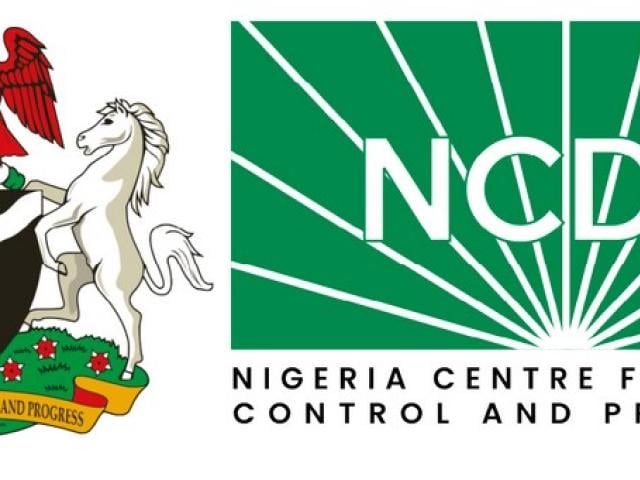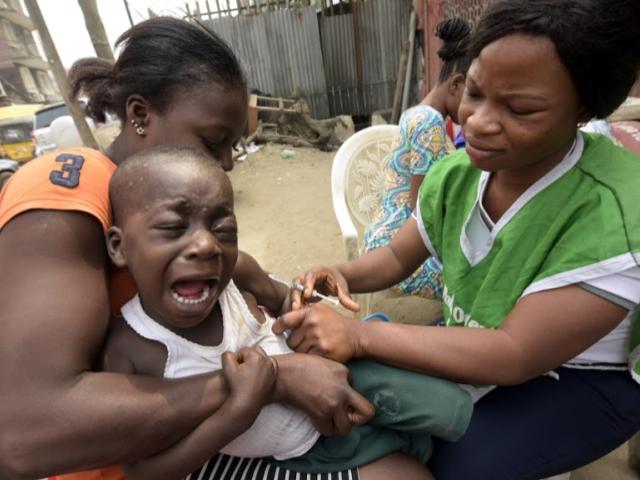Nigeria's health authorities are struggling to control a resurgence of the serious bacterial infection diphtheria.
In January 2023, there were more than 100 cases in just four states, according to the Nigeria Centre for Disease Control (NCDC), the agency that handles public health emergencies in the country.
As of 17 October, the agency told Africa Check that 14,482 suspected cases of diphtheria had been reported. Of these, 9,486 were confirmed cases from 19 states, including the Federal Capital Territory.
Some 128 of the country’s 774 local government areas were affected.
The four states with the highest number of cases were Kano (7,795 cases), Yobe (840), Katsina (255) and Bauchi (351).
As cases continue to rise, this factsheet looks at the situation and what the authorities are doing to slow down the increase.
What is diphtheria?
Diphtheria is a highly contagious infection that is fatal in up to 10% of cases. It is caused by the bacterium Corynebacterium diphtheria, of which humans are the only natural host.
It affects all ages but most commonly young children. It is endemic in countries with low immunisation levels. This means that it is always present but confined to a particular region, making its behaviour easier to predict.
The disease is spread through respiratory secretions, or by breathing in droplets from an infected person when they cough or sneeze.
There is a higher risk of the disease spreading in closed and crowded places. Communities with high vaccination coverage have a lower risk.
The disease produces toxins that kill healthy tissue in the respiratory system. The dead tissue forms a membrane that can build up over the throat and tonsils, making it difficult to breathe and swallow. Many patients die of airway obstruction.
The US Centers for Disease Control and Prevention says “if the toxin gets into the bloodstream, it can cause heart, nerve, and kidney damage”.
Why is Nigeria experiencing a spike in cases?
According to the NCDC, the spike in diphtheria cases is directly linked to a gap in vaccine coverage. This gap has contributed to the outbreak in the most vulnerable age group, children aged five to 14 years.
A national survey shows that only 42% of children under 15 are fully protected against diphtheria (Note: The NCDC says the survey is not publicly available).
The director general of the NCDC, Ifedayo Adetifa, told the media in October that most of the confirmed cases were in people not vaccinated against the disease.
“As of 3 October, out of the 8,406 confirmed cases, 5,371 (64%) are either unvaccinated or partially vaccinated, 966 (11%) have unknown vaccination status while 2,069 (25%) are fully vaccinated against diphtheria,” he said.
When did cases begin to increase?
Between 30 June and 31 August Nigeria recorded an “unusual” increase in the number of confirmed diphtheria cases, according to the World Health Organization (WHO).
At that time, 5,898 suspected cases were reported in 11 states, with the majority in Kano, Katsina and Yobe in the north.
Nigeria has recorded diphtheria outbreaks in the past, notably in 2011 and 2022. The WHO also says diphtheria outbreaks are underreported in Nigeria.
Why is northern Nigeria the worst hit?
The outbreak started in Kano, which was the epicentre, Adetifa said in a television interview on 4 October. He added that Nigeria's poor vaccination coverage was a major contributor to the increase in cases in the northern states.
According to the NCDC, a three-dose vaccination in infancy helps build lifelong immunity against diphtheria. In Nigeria, this is given at six, 10 and 14 weeks of age.
Diphtheria vaccines, together with those for tetanus and pertussis, or whooping cough, all together known as DTP, have been part of the WHO’s immunisation programme since 1974.
Many countries, including Nigeria, give two other vaccines – hepatitis B and Haemophilus influenzae type B, or Hib disease – to form the pentavalent vaccine. This protects a child against five life-threatening diseases.
According to the 2021 Nigeria Multiple Indicator Cluster Survey and National Immunisation Coverage Survey, coverage with the third dose of pentavalent vaccine was 57% in 2021.
Children in the north-eastern geographical zone had the lowest diphtheria vaccination coverage at 41.7%. The rate was 42.9% in the north-west and 57.2% in the north-central region of the country.
WHO also says that insecurity in the northern regions has hampered access to vaccines.
Latest interventions from the government
The NCDC says a national rapid response team has been deployed to the states of Kano, Yobe, Katsina, Bauchi, Borno, Kaduna, Jigawa and Zamfara to strengthen the response to the outbreak.
In addition, Adetifa said the country had 14 laboratories that could support diphtheria testing and that the upgrading of five other laboratories was underway.
According to global health agency the WHO, diphtheria is treated with an antitoxin. Antibiotics are also given to eliminate bacteria and toxin production and to prevent transmission. The Nigerian government has also made diphtheria antitoxin and antibacterials available.
According to the NCDC, this has resulted in a significant reduction in the case fatality rate from around 40% to around 6%.
NCDC’s advice to reduce the risk of diphtheria infection includes:
- Mandatory use of face masks in public spaces.
- Washing hands and distancing oneself from infected people.
- Vaccinate children and all healthcare workers at high risk of exposure.
The diphtheria outbreak is the result of a failure of the health system, Tanimola Akande, a professor of public health at the University of Ilorin in Kwara state, central Nigeria, told Africa Check.
“Health-seeking behaviour is poor. Most of the cases did not receive the diphtheria vaccine, which is free.
“The government needs to educate citizens to ensure that their children are fully immunised. In addition, community-based activities to sensitise caregivers are vital. Outreach programmes to reach the underserved need to be strengthened,” he said.






Add new comment